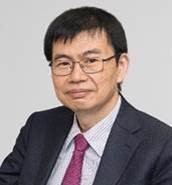Abstract:
iPSC technology has multiple applications in regenerative medicine and drug development. NS/PCs derived from iPSCs have shown promise for the treatment of spinal cord injury (SCI). We performed the first human participant transplantation of iPSC-derived NS/PCs for subacute SCI in 2021. iPSC-based techniques also offer new opportunities for disease modeling and drug development. Ropinirole was identified as a potential anti-ALS drug through iPSC-based studies and confirmed in the ROPALS trial.
Venue:
Amphitheatre, Level 2
Duke-NUS Medical School
Host:
Prof Wang Hongyan
Principal Investigator & Deputy Programme Director
Neuroscience & Behavioural Disorders Programme, Duke-NUS
Contact Person:
Jacqueline Ho (jacqueline.ho@duke-nus.edu.sg)
Neuroscience & Behavioural Disorders Programme, Duke-NUS
Date and Time
22 Jun 2023 @ 15:00 - 22 Jun 2023 @ 16:00
Speaker

Prof Hideyuki Okano
Professor and Chair
Department of Physiology
Keio University School of Medicine, Japan
Prof Okano received his M.D. in 1983 and his Ph.D. in 1988 from Keio University. He was a postdoctoral fellow at Johns Hopkins. He was appointed full professor at Tsukuba University in 1994, at Osaka University School of Medicine in 1997, and returned to Keio University Medical School as full professor of physiology in 2001. He has been serving as President of the Japanese Society for Regenerative Medicine since 2021 and will become Vice President of ISSCR on July 1, 2023.